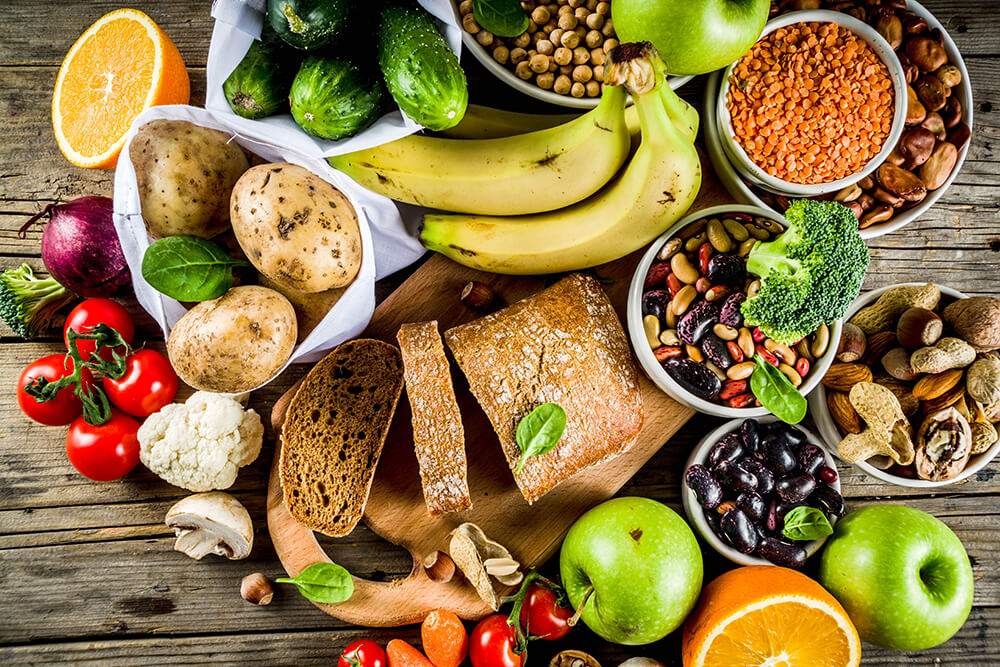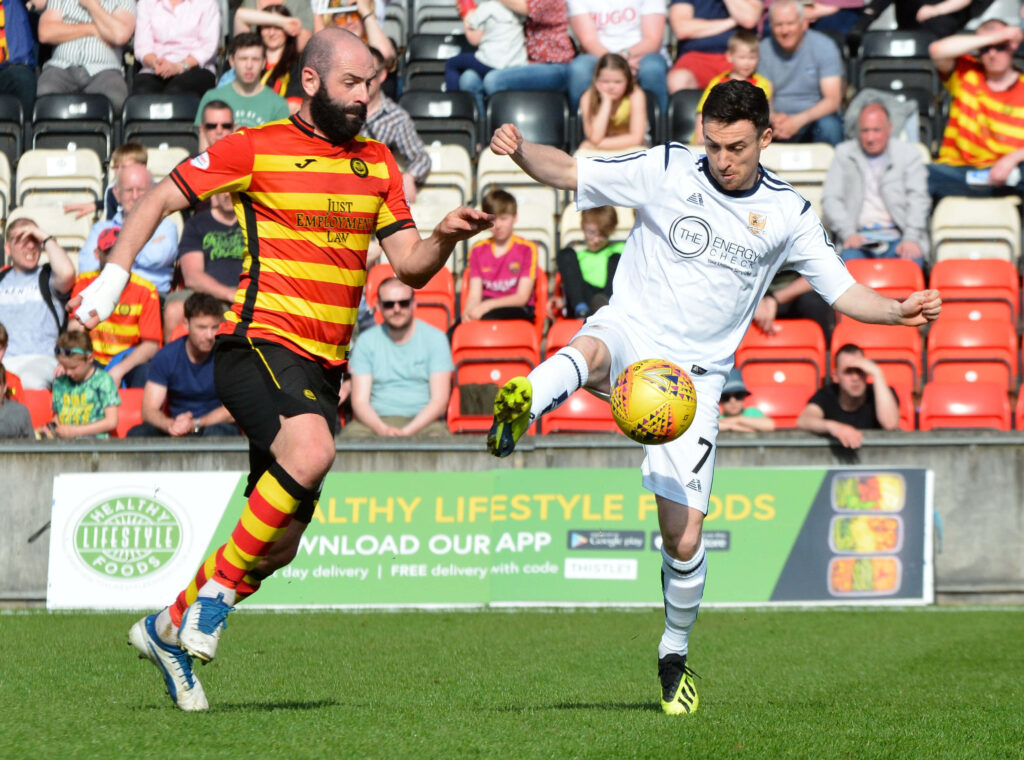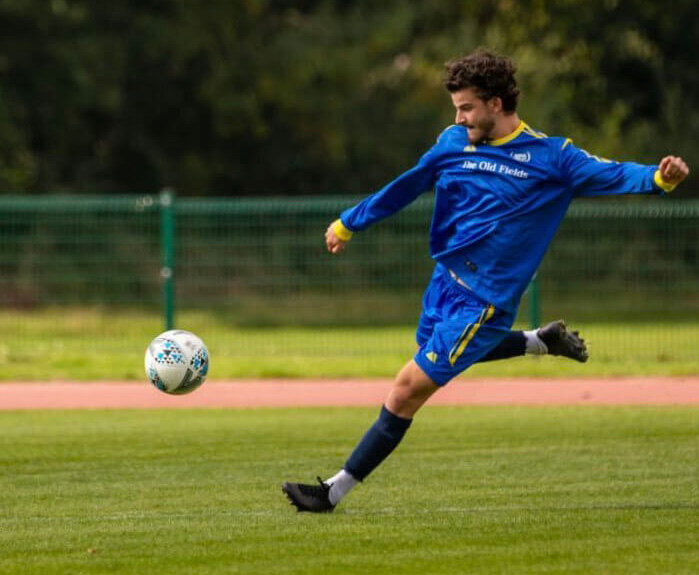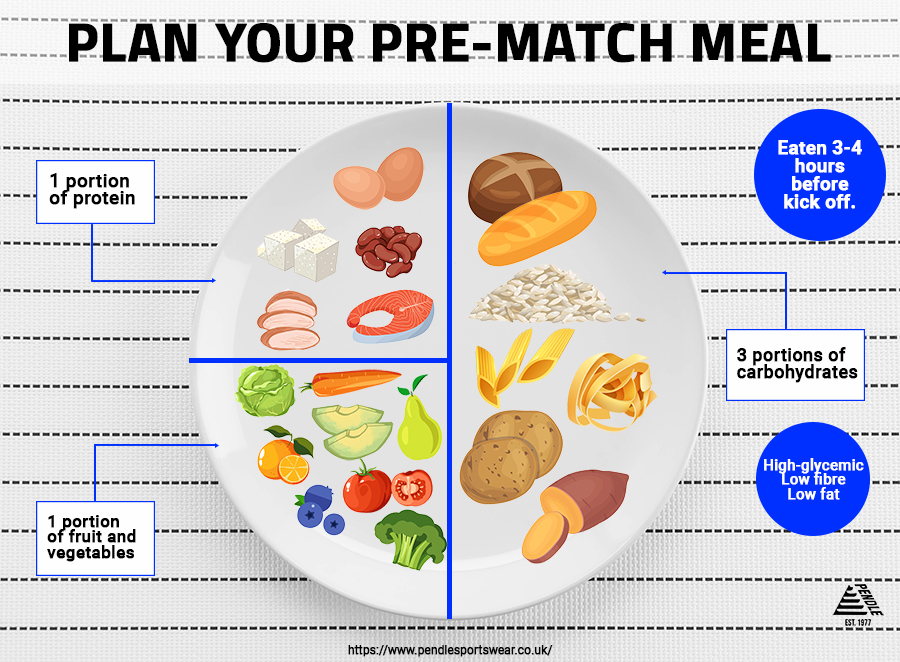Last Updated on: 11th October 2024, 12:02 pm
Pre- and Post-Match Nutrition
What to eat before and after a football match?
You’ve done your pre-season training and are at peak performance, so you want to make the most of each match. Nutrition plays a major role in your performance on the pitch, so it’s good to have a rudimentary understanding. You can view our pre-season diet plan on our blog but which foods should you be eating before and after a game? We’ve put together a quick guide to the best practices for nutrition ahead of and following your next match. This post goes hand-in-hand with our guide to hydration to ensure you’re well-prepared for your game.
 Pre-Match Nutrition
Pre-Match Nutrition
Pre-match nutrition is all about fuelling up to ensure you give the best possible performance on the pitch. Carbohydrate-based foods are a footballer’s main source of energy as they’re stored in the muscles as glycogen. The main aim of pre-match nutrition is to ensure glycogen stores are fully topped up before your match.
Players often mistakenly believe that the pre-exercise meal (eaten around 3-4 hours ahead of the game) is the best time to load up on extra carbohydrates. However, one meal won’t be enough to boost stores significantly. Research shows that carbs consumed in a pre-exercise meal will boost stores by around 20%. You can achieve a much greater by fuelling up on carbohydrates earlier.
Pre-Match Fuelling
It’s recommended that you start your pre-match fuelling 24 hours ahead of the match, so take into account the time of your game. To adequately fuel up, you should aim to consume around 25-50% more than your current carb intake over 24 hours.
For example, a player weighing 70kg would need to take in around 500-700g of carbs to fuel for 90 minutes of play.
Which foods to eat?
This might seem overwhelming, so you might want to think about which foods you consume. It might be easier to switch to carbohydrate-dense sources of food that you know you can eat a lot of. For instance, pasta or rice may be easier to eat in larger quantities than sweet potatoes.
A dish of boiled rice is equivalent to about 60g of carbohydrates, a banana contains around 30g and two slices of bread will come to about 25g of carbs. You can also add rice cakes, cereals, energy bars, fruit juice or smoothies to reach your goal.
Pre-Exercise Meal
A pre-exercise meal should be eaten 3-4 hours before your match starts and should be light on the stomach. The best choices are high-glycemic energy sources that are low in fibre and fat. These will be digested and absorbed into the muscle tissues faster, which means they’ll be available to fuel your performance during the game.
Some good options include white bread with jam, sports drinks, energy bars, cereals, and some fruits. If it’s an evening match, add some pasta or rice to your pre-exercise meal. You should avoid oils, red meats and high-fat dairy as these will slow the digestion of the meal.
How much should I eat?
To achieve the highest possible glycogen levels, your pre-match meal should provide about 2g of carbs per kg of bodyweight. So, if you are a 70kg player, you should aim for around 140-150g of carbohydrates in your pre-match meal.
This might seem unhealthy but the goal is to keep your stores full to help maintain optimal performance on the pitch. It’s also important to remember that this is just 1 meal in your week. As long as you’re maintaining a healthy diet the rest of the time, you’ll get all the nutrients you need.
Pre-Match Snack
Keeping carbohydrate intake high during games can benefit your physical and cognitive performance on the pitch. Experts recommend ingesting 30-60g of carbohydrates before warming up for your match. This snack should be easy on the stomach and quick to digest. It might be easier to go for a liquid-based option. For example, one litre of isotonic drink can give you around 60g of carbs.
 Half-Time Nutrition
Half-Time Nutrition
Players often overlook the importance of half-time nutrition but you should be view it as a chance to maintain energy, focus, and hydration for the rest of the match.
- Maintaining Energy
Half-time nutrition should be all about trying to prevent fatigue in the second half. This will only be effective if your pre-match has already set you up with enough energy to last the whole match. The point of half-time nutrition is to top up and replace the energy you’ve already used.
Around 20-40g of carbohydrates should be enough for most players to maintain their energy levels. This needs to be easily digested and quickly absorbed into the muscle.
- Maintaining Focus
Making sure you keep your concentration for the remaining 45 minutes of play is something many players struggle with. There is plenty of research to show that caffeine can help boost concentration and increase adrenalin production. Both of these are very beneficial for football.
It only takes around 15 minutes for caffeine to become active in the body, which makes it perfect for half-time. The amount you need depends on your individual caffeine tolerance. The most efficient way to consume this would be a carbohydrate gel or a drink containing caffeine. Although, you’ll want to try this out at training before adding it to your match day routine.
Post-Match Nutrition
Nutrition plays an important role in promoting quick recovery. You should not only be focused on the healing of damaged muscle tissue. It’s also about rehydration and restoring the energy lost during your match. In the first 4 hours after the match, you should aim for a carbohydrate intake of about 1g per kg of bodyweight. So, a 70kg player should be consuming 70g of carbs every hour in this period. These intakes must also be accompanied by liquid to help rehydration.
In the subsequent 24 hours after your match, carbohydrate intake should remain higher than normal to ensure your stores are fully replenished. Aim to consume around 8g per kg of bodyweight during this period. This means a 70kg player should aim to consume between 500-600g of carbs.
 Protein
Protein
It’s not just carbs that you need to be thinking about after the match. You should also be controlling protein intake to promote muscle recovery. For the day of and the day after your game, you should be aiming for an intake of around 1.5g of protein per kg of bodyweight. This should be enough to fully repair damaged muscle tissue after your match.
In the first hour, you should aim to consume 30-40g of fast-digesting protein as this will jump-start your recovery. You should then consume around 20-25g of protein every 3-4 hours in order to reach the target intake. During this time, you need to be looking for high-quality protein sources like meat or fish. If you’re a vegetarian, go for dairy, lentils, and beans. There are also plenty of great protein options for vegans.
Stand Out On The Pitch
Looking after your nutrition will help your performance on the pitch. You’ll have more energy and will be able to keep fighting for longer. With such a high performance, you’ll want to make sure that you get the highest quality football kits. Shop our range of designs and get your next team kit with one of our great deals.
Pick something classic like the Rio or the Kiev shirts. We’ve got the hooped Boca or the striped Roma in a range of colours. If you want something a bit bolder then check out the half-and-half Sparta or the Vigo shirts. Don’t forget we’ve got women’s football shirts and shorts available for you female players.
You’ll also want to grab a selection of match footballs and some kit bags so you’re prepared for your matches. Make sure to pick up a water bottle so you can stay hydrated.
Tags: Football advice, football match preparation, football season, nutrition


